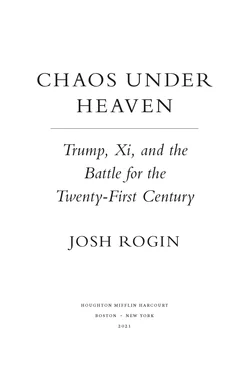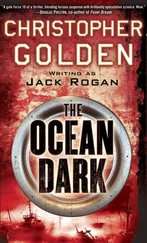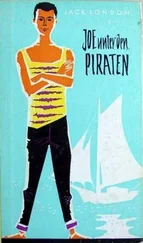Sincere thanks go to the people who spoke for this book at great personal risk, including dozens of brave Uyghurs, Tibetans, Hong Kongers, and Chinese dissidents who know that when they exercise their right to free speech in the United States, their family members inside China could bear the brunt of the Chinese government’s retaliation. These sources took this risk in the hope that by telling their stories, people around the world might understand—and then act to stop—the suffering of their families and friends undergoing severe repression at the hands of the Chinese Communist Party. I thank them for trusting me with these stories, and I only hope I did those stories justice.
The credit for inspiring this book and coming up with the title belongs to Peter Mattis, an old friend and a true patriot. I thank him, along with dozens of other Americans serving their country inside and outside government, for helping bring the story of China’s influence operations inside the United States out of the shadows and for helping me tell these parts of it. A group of Australian scholars and journalists paved the way for this genre of reporting and helped me immensely as I delved into it, including John Garnaut, John Fitzgerald, Clive Hamilton, and Alex Joske. Joske and Hana Meihan Davis were the researchers for this book, and they represent the best and brightest of the next generation of China scholars. They both have long and bright professional futures ahead of them.
Thanks to my super-agents, Keith Urbahn and Matt Latimer at Javelin, for guiding me through every step of this process, beginning with the concept and the proposal. And thanks to the entire team at Houghton Mifflin Harcourt for their excellence and professionalism throughout, including former publisher Bruce Nichols, current publisher Deb Brody, Laura Brady, Lori Glazer, Megan Wilson, Michael Dudding, Andrea DeWerd, Olivia Bartz, Tommy Harron, Brian Moore, Wendy Muto, and David Eber. Special thanks to my editor Alex Littlefield, whose ability to make hundreds of small improvements in the manuscript while seamlessly and steadily guiding the larger vision was invaluable. He eclipsed the role of editor and became a true partner in this project.
This book would not have been possible without the help and support of my colleagues at the Washington Post, especially Editorial Page Editor Fred Hiatt and Deputy Editorial Page Editor Jackson Diehl. They trusted me, in 2016, when I told them the China story was worth the significant time and investment I wished to devote to it, despite that other issues may have seemed more newsy. I owe thanks and appreciation to the other leaders of the Editorial section, including Ruth Marcus, Jo-Ann Armao, Michael Duffy, Michael Larabee, Mark Lasswell, Trey Johnson, Eli Lopez, Christian Caryl, Mili Mitra, James Downie, Becca Clemons, and others, along with Washington Post columnists who set the gold standard by their examples, including David Hoffman, Robert Samuelson, Charles Lane, David Ignatius, and many more. I must also thank Washington Post owner Jeff Bezos and Publisher Fred Ryan for building an organization that supports great journalism and has kept the highest standards of integrity and quality during this tumultuous period in both journalism and politics.
I am also very appreciative of the chance to work with great journalists and executives at CNN, including Jeff Zucker, Sam Feist, Rebecca Kutler, Wolf Blitzer, Jake Tapper, Chris Cuomo, Anderson Cooper, Brooke Baldwin, Brianna Keilar, Kate Bolduan, John Berman, Alisyn Camerota, Jim Sciutto, Poppy Harlow, Erin Burnett, Dana Bash, and the army of producers, bookers, news assistants, cameramen, makeup artists, and technicians who make quality news production on cable television possible.
Any success I have had in journalism would not have been possible without the help of many great journalists who hired or mentored me throughout my career. They include my former editors at Bloomberg, David Shipley, Tim O’Brien, and Toby Harshaw; my former editors at the Daily Beast, John Avlon and Noah Shachtman; my former editors at Foreign Policy magazine, Moises Naim, Susan Glasser, and Blake Houn-shell; my former editors at Congressional Quarterly, Jonathan Broder, Frank Oliveri, and Jeff Stein; the former editor in chief at Federal Computer Week magazine, Chris Dorobek; and my former bosses at the Asahi Shimbun, Nishimura Yoichi, Sakajiri Nobuyoshi, and Ishiai Tsutomu.
I owe special thanks to Washington Post columnist E. J. Dionne, who hired me as an undergrad with no experience for my first Washington internship at the Brookings Institution and gave me the best advice I’ve received for journalism and life: always treat people with kindness and good things will happen. I also owe a debt of gratitude to my former writing partner Eli Lake, who helped me navigate both Washington and the journalism business when I was a younger reporter.
Reporting on the Trump administration’s approach to China is akin to the fable of the blind men and the elephant. In the story, a group of blind men are arguing as they describe an elephant based on touching it. One is touching the tusk, another is touching the tail, another is touching the leg, et cetera, and so they all have different, competing accounts. Only when the wise man comes to tell them they are all touching different parts of the same elephant do they realize they are all telling the truth, just from the perspective of their subjective experiences. I’ve tried to touch as many parts of the elephant as possible in my own reporting. But I could not have assembled this more comprehensive account without relying on the work of many other journalists who were covering this issue at the same time for various publications. I’ve endeavored to credit as many of them as possible in the text and endnotes, and I especially valued the work of Bethany Allen-Ebrahimian, Bill Bishop, Chris Buckley, Bob Davis, Ana Fifield, Mike Forsythe, Joshua Kurlantzick, David Nakamura, Kate O’Keefe, Evan Osnos, John Pomfret, Austin Ramzy, Emily Rauhala, Gerry Shih, Isaac Stone-Fish, Nahal Toosi, Aruna Viswanatha, Lingling Wei, and Bob Woodward.
I would like to thank my parents, Michael and Sharon Rogin, to whom this book is dedicated; my sister Naomi Kaplan; my in-laws, Max and Rebecca Weinberg; and my siblings-in-law, Barry Kaplan and Jay and Chloe Weinberg, for putting up with me all these years. And last but not least, I am thankful each and every day for the love and support of my “elegant, talented, and pugnacious” wife, Ali. When asked at our wedding to describe her in three words, these were the ones I chose, and so they remain. I love you.
Notes
PROLOGUE
xiii at his Boston home: “John Kerry Hosts Yang Jiechi for ‘Frank’ Talks at His Boston Home,” South China Morning Post, October 19, 2014, https://www.scmp.com/news/china/article/1619633/john-kerry-hosts-yang-jiechi-frank-talks-his-boston-home.
xiii “important consensus”: “Yang Jiechi Holds Working Meeting with US Side,” Chinese Embassy, November 2, 2016, http://no.china-embassy.org/eng/zyxw/t1412858.htm.
xiii White House’s readout: “Statement by NSC Spokesperson Ned Price on National Security Advisor Susan E. Rice’s Meeting with State Councilor Yang Jiechi of China,” White House, November 1, 2016, https://obamawhitehouse.archives.gov/the-press-office/2016/11/01/statement-nsc-spokesperson-ned-price-national-security-advisor-susan-e.
xiii pitched directly to Obama: “Remarks by President Obama and President Xi Jinping of the People’s Republic of China After Bilateral Meeting,” White House, June 8, 2013, https://obamawhitehouse.archives.gov/the-press-office/2013/06/08/remarks-president-obama-and-president-xi-jinping-peoples-republic-china-.
Читать дальше











